The Best Thing to Happen in Denver Since Sliced Bread
Attention, carb addicts. Meet baking wizard Zach Martinucci, founder of Rebel Bread
By Kathryn O’Shea-Evans
Attention, carb addicts. Meet baking wizard Zach Martinucci, founder of Rebel Bread
By Kathryn O’Shea-Evans
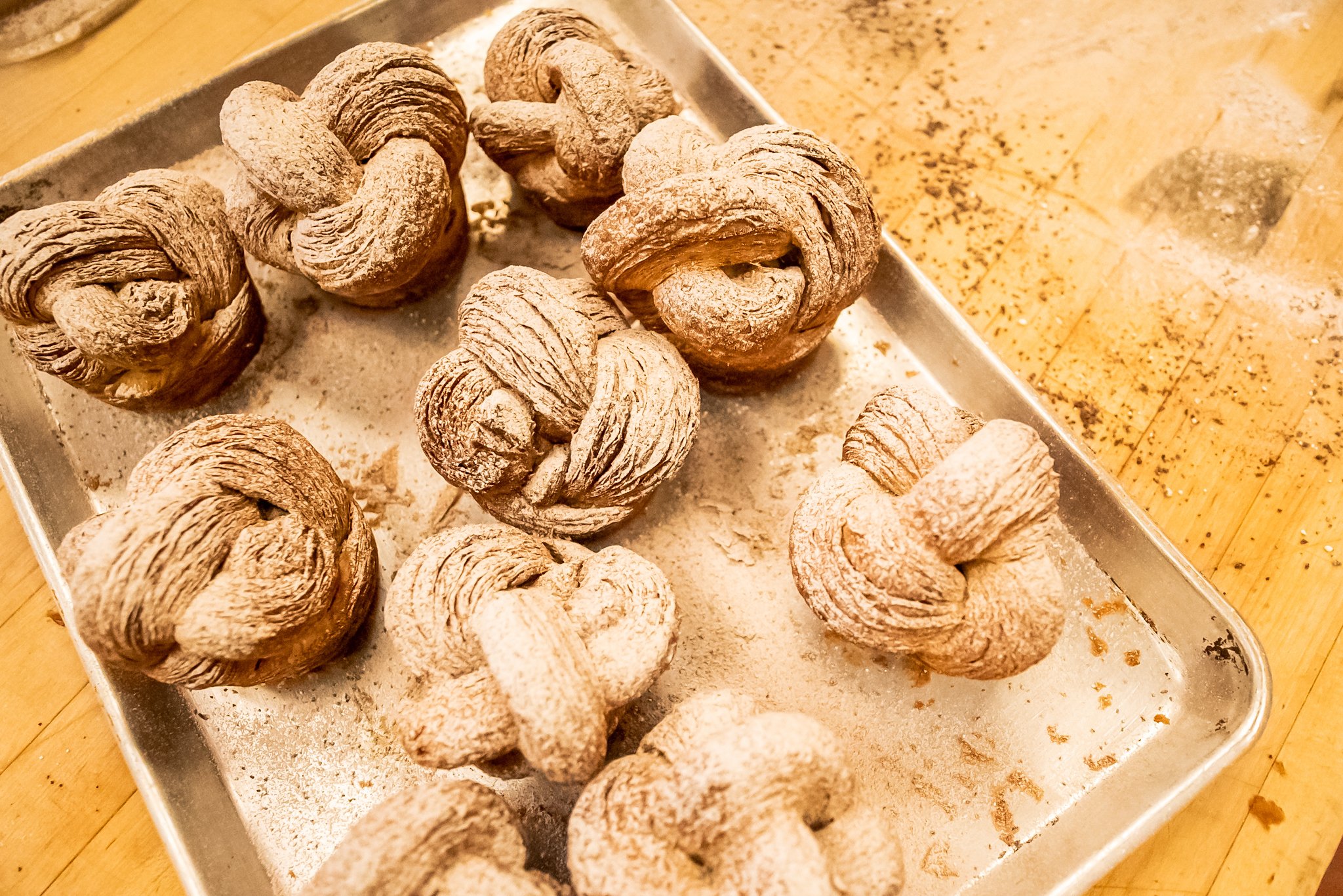
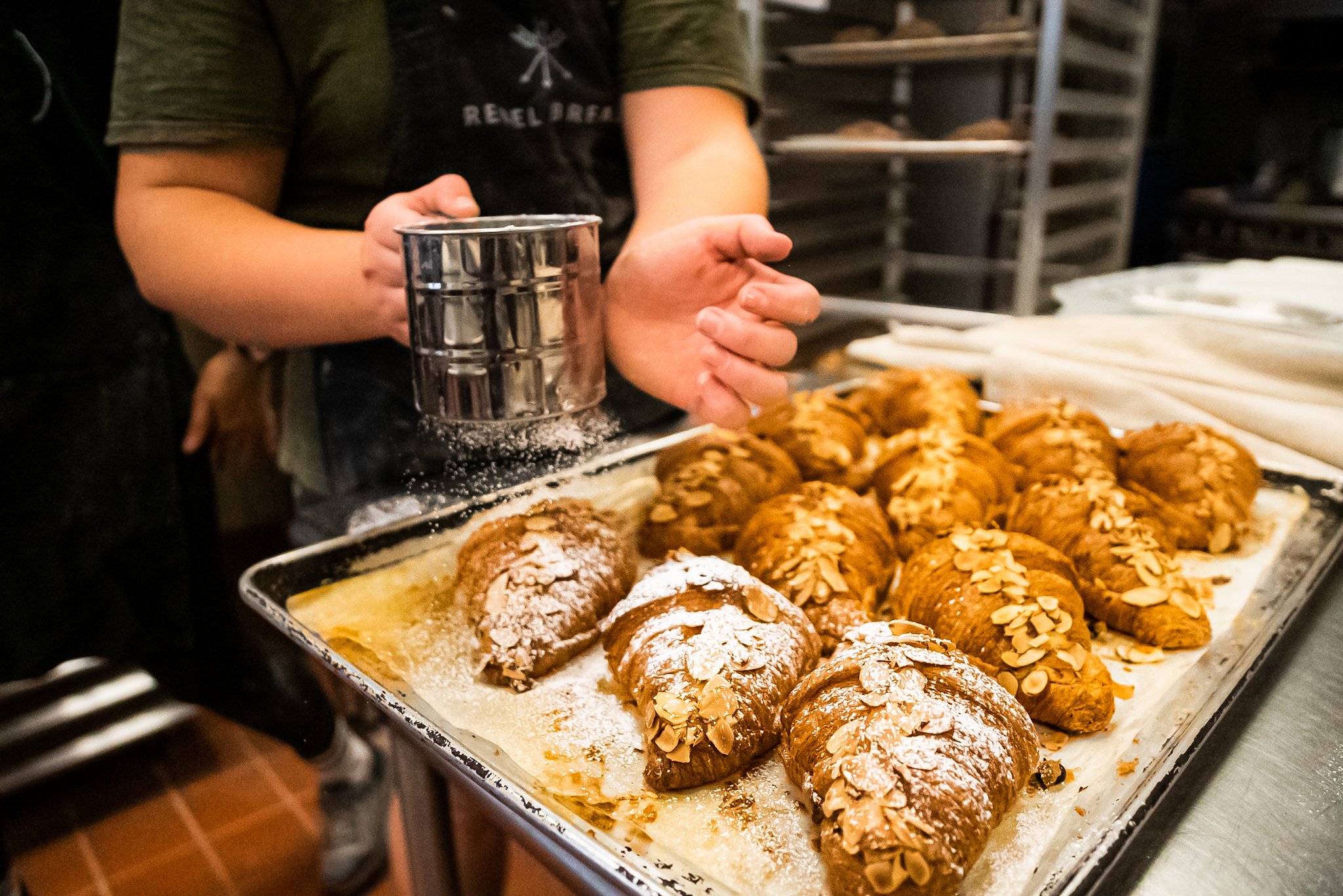
You studied culinary anthropology at UCLA. What are some of the most interesting things you learned about bread?
What I’ve come to see is that every culture has a flat bread and an everyday bread. And once I went to baking school and I saw that most of them on their formula level—in terms of the flour, water, salt and yeast that goes into it—are very similar breads. We all kind of make the same bread. The flat bread I learned to make in Bologna is the same recipe I used to make pita bread. I just shape it differently and bake in the oven instead of on the stove.
That is so fascinating! How long have humans been eating bread?
We think about 3,000 years. We think that it was on the banks of the Nile that someone left a flour and water mixture out by accident, and found it the next day and that it started to ferment. That was the first sourdough. It’s always been a part of humanity. And we’ve seen everyone return to home baking in the last year or two, and I think it’s this part of us that means something. It’s always been there.
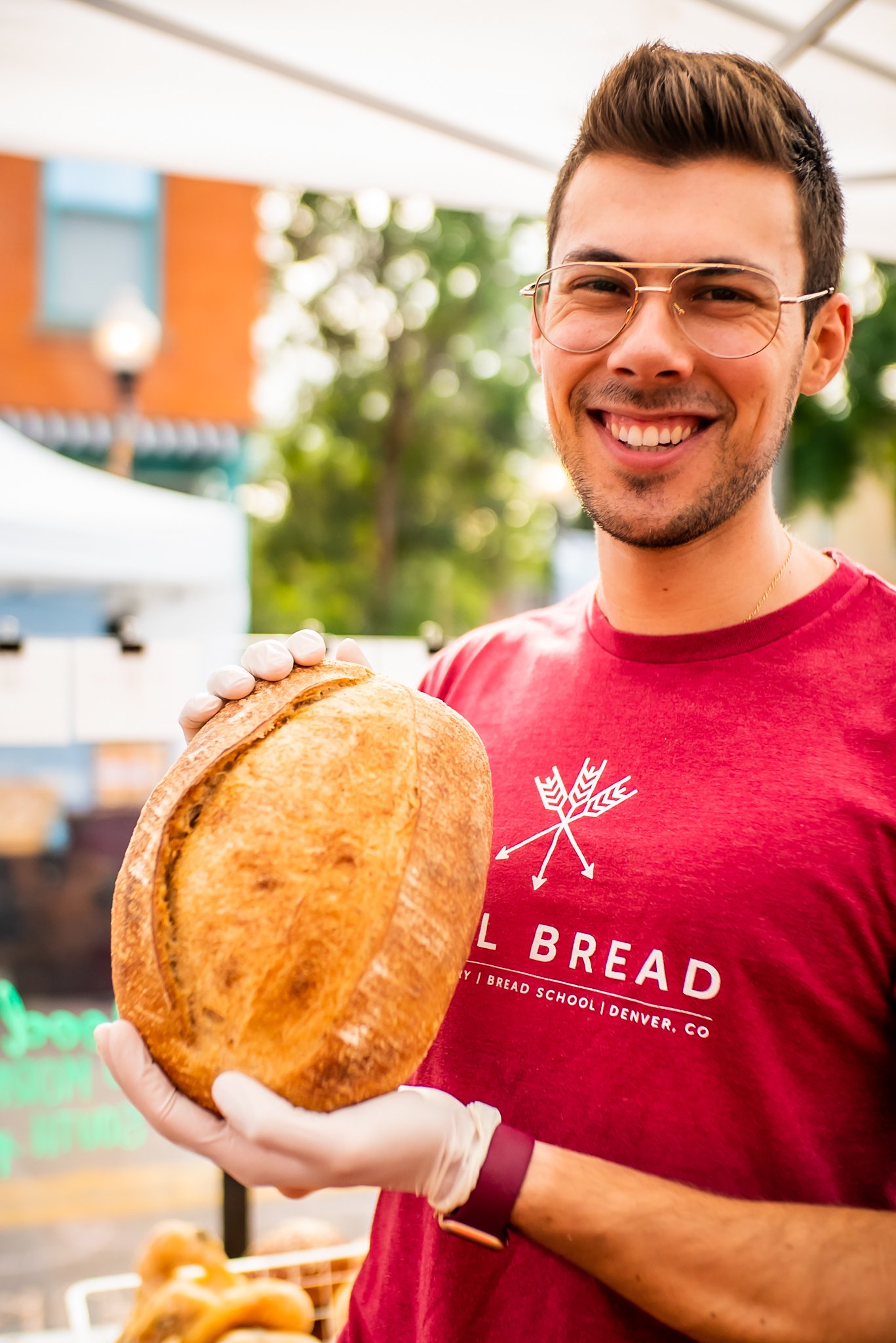
I love it. Now that you’re a Coloradan, what advice do you have about baking at altitude?
Things are much drier in Denver than they are at sea level, so it’s not altitude specific, but the moisture in Colorado is significant. We always start with the sea level recipe, but often we’ll add like 5 percent more hydration to the water content of whatever we’re making, so it’s not too dry. At this altitude, things take less time to rise or they rise more easily because of the lower atmospheric pressure. So if a sea-level recipe says, “Leave this to proof for two hours,” it’s going to be ready in maybe an hour or less.
Such good insights! Now, tell me about your bakery.
We specialize in artisan bread: mixed by hand by real people, often long fermented and naturally leavened when we can, and baked in a hearth oven, directly on a stone. So you’re going to get a crisp crust and a chewy interior. We specialize in different flavors of sourdough, ciabatta, baguettes and mostly croissant-based pastries and brioche, highlighting local produce. We love to make things that are just different enough, so we’ll surprise you with a flavor you haven’t seen before, something novel. One of my favorite loaves is called the Nonna G, which is our roasted garlic herb sourdough that was named after my nonna and meant to taste like how her kitchen smelled when she was cooking in it—with roasted garlic, fresh rosemary and sage, and extra salt and pepper. I love that there’s a story behind it, but if you didn’t know any of that, it’s just an excellent herb loaf that you can dip in olive oil or make sandwiches with or just snack on.
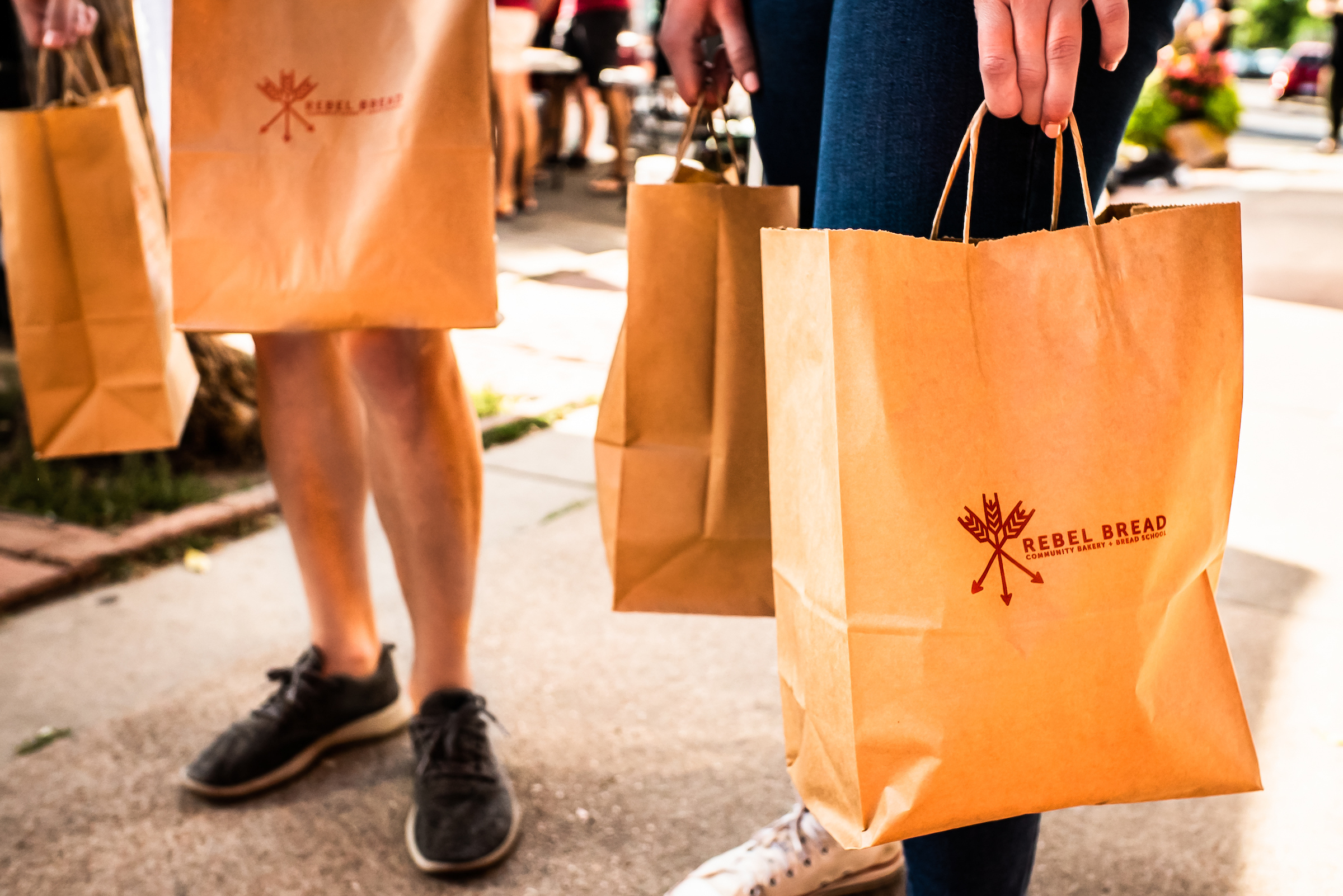
What do readers need to know about preserving your bread?
We recommend placing it upside down on a cutting board. To keep it for a few days, you can wrap it in plastic or beeswax or keep it in an airtight container. Denver is so dry, so if you want to keep it for more than three or four days, we recommend that you freeze it. The best way is to pre-slice it, wrap it in something airtight, and put it in the freezer so you can pull out individual slices to make toast without having to pull the whole loaf out.
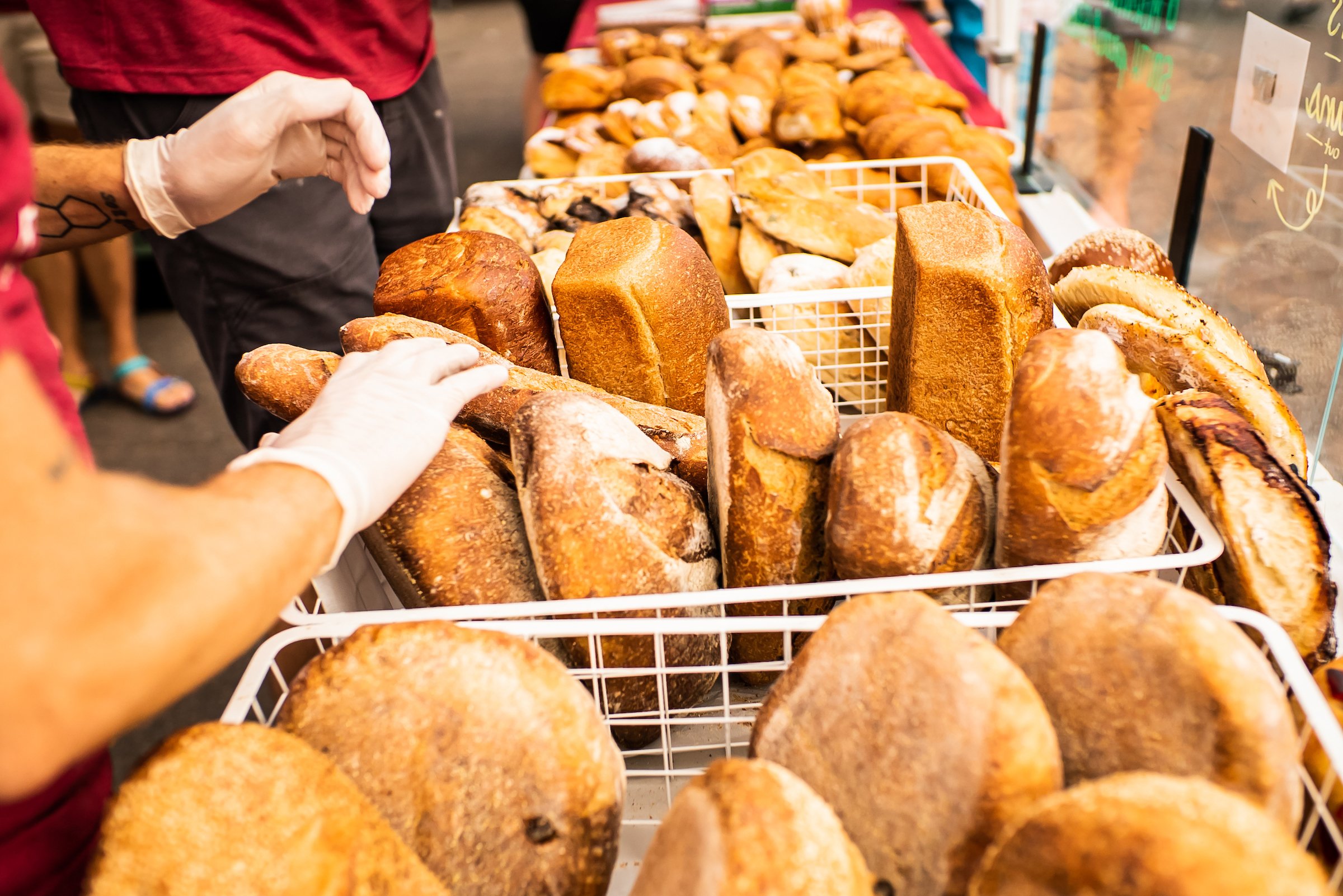
I’m told you have a bread club. Magical words!
Bread club was our pandemic response program, to bring bread directly to people’s homes at a time when we were entirely wholesale. We carry three other bakeries as well, and a coffee roaster. We deliver within the city of Denver as well as offer pickups at our retail counter at 675 South Broadway. People can preorder off a limited menu (getbreadclub.com), which changes month to month, and you can set up a subscription for yourself or place a one-time order.